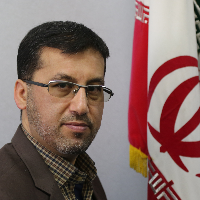The Construction of Alavi Security Theory: An Analysis of Pre-Imam Ali's Government
Author(s):
Abstract:
Following the demise of the Prophet of Islam, the Islamic polity witnessed a transitional period in which the caliphate in established as the political system. It occurred while in the Shii viewpoint, Imamate as a religious-political organization linked to the prophecy had to assume such an important responsibility. Therefore, Shiism as led by Imam Ali (Peace be upon him) was marginalized. This situation lasted until the Alavi government was created following the murder of the third Caliph. Although security is identified as a public goods that is secured through the government’s management, the question that thy he did not resist the dominating political current despite his righteousness leads us not to consider the foundations of the security theory in the Alavi period as merely limited to his government’s time.This article, which is published in a paper series about the Islamic theory of security, deals with a sensitive era stretching from the demise of the Prophet of Islam to the establishment of the Alavi government. Proposing the concept of “securitized identity,” the author indeed speaks of the priority of the “preservation of the Sharia per se” over the “assumption of government for guidance” because of the existence of alternative options for the achievement of guidance.
Language:
Persian
Published:
Journal of Strategic Studies, Volume:8 Issue: 2, 2005
Pages:
231 to 256
https://magiran.com/p263143
مقالات دیگری از این نویسنده (گان)
-
Explaining the meaning and concept of socialization and community building with emphasis on the thought of Imam Khamenei
, Mohammadbagher Babahadi *
Journal of State Studies of Contemporary Iran, -
determining the system of national security dimensions in the Islamic Republic of Iran
Fardin Dabirian *,
National Security,


